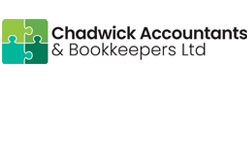Small business debt collection agencies and debt recovery lawyers play a crucial role in guiding these businesses through the complexities of recovering debts while ensuring legal compliance. This guide aims to shed light on the essential aspects of small business debt recovery, from pre-litigation actions to handling debtor disputes.
Understanding Pre-litigation Actions
Pre-litigation actions are crucial steps taken before initiating formal legal proceedings. These actions can include sending demand letters, negotiating payment plans, and conducting debtor asset searches. For small businesses, these preliminary steps are vital as they offer a cost-effective way to recover debts without resorting to court action. Effective pre-litigation strategies include:
- Clear Communication: Ensure that all communication with the debtor is clear, concise, and documented. This can serve as evidence if the case escalates to court.
- Demand Letters: Utilise formal demand letters that outline the debt owed and the consequences of non-payment. These letters should be professional and adhere to legal standards.
- Negotiation: Attempt to negotiate a settlement or payment plan. Flexible terms can often lead to quicker debt recovery and maintain business relationships.
Legal Compliance in Debt Recovery
Legal compliance is non-negotiable in the debt recovery process. Small businesses and their collection agencies must adhere to laws such as the Fair Debt Collection Practices Act (FDCPA) and local regulations governing debt recovery. Key aspects of legal compliance include:
- Understanding Debt Collection Laws: Familiarise yourself with both federal and state debt collection laws to ensure all recovery actions are lawful.
- Maintaining Professionalism: Avoid practices that could be considered harassment, misrepresentation, or unfair. This not only ensures compliance but also preserves your business’s reputation.
- Record-Keeping: Maintain detailed records of all interactions with debtors, as well as any payments received or agreements made.
Effectively Managing Debtor Disputes
Debtor disputes are a common challenge in debt recovery. Handling these disputes effectively is crucial for maintaining legal compliance and securing payment:
- Investigation: Thoroughly investigate any disputes raised by the debtor. This may involve reviewing contracts, invoices, and payment histories.
- Documentation: Keep detailed records of the dispute resolution process, including all communications and decisions made.
- Resolution: Aim for a fair and reasonable resolution. If an error has been made, correct it promptly. If the debt is valid, continue to seek recovery while respecting the debtor’s rights.
Leveraging Technology for Efficient Debt Recovery
Technology can significantly streamline the debt recovery process for small businesses. Platforms like the Debt-Claims online portal offer tools for managing debt recovery cases, tracking communications, and ensuring legal compliance. Key technological advantages include:
- Automated Systems: Use automated systems for sending reminders and demand letters, saving time and reducing manual errors.
- Online Portals: Utilise online platforms for case management, allowing for efficient tracking of each debt recovery case.
- Digital Documentation: Maintain digital records of all debt recovery actions and communications for easy access and reference.
Conclusion
Navigating the legal complexities of small business debt recovery requires a thorough understanding of pre-litigation actions, strict adherence to legal compliance, and effective management of debtor disputes.
By employing strategic approaches, leveraging technology, and ensuring all actions are within legal bounds, small business debt collection agencies and lawyers can enhance their debt recovery efforts while protecting the interests of the businesses they represent.



























